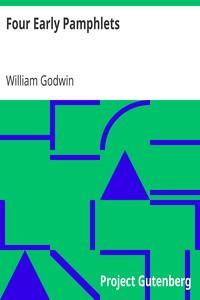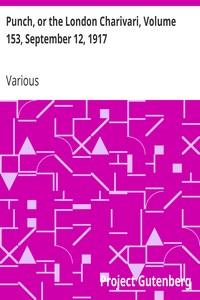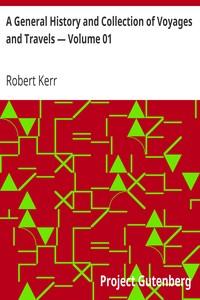|
|
Read this ebook for free! No credit card needed, absolutely nothing to pay.Words: 17836 in 6 pages
This is an ebook sharing website. You can read the uploaded ebooks for free here. No credit cards needed, nothing to pay. If you want to own a digital copy of the ebook, or want to read offline with your favorite ebook-reader, then you can choose to buy and download the ebook. HERALD LITERATURE, &C. We are happy to have it in our power thus early to congratulate the public upon the final accomplishment of a work, that must constitute one of the greatest ornaments of the present age. We have now before us, in one view, and described by the uniform pencil of one historian, the stupendous and instructive object of the gradual decline of the greatest empire; circumscribed by degrees within the narrow walls of a single city; and at length, after the various revolutions of thirteen centuries, totally swallowed up in the empire of the Turks. Of this term, the events of more than nine hundred years are described in that part of our author that now lies before us. It cannot therefore be expected, that in the narrow limits we have prescribed to ourselves, we should enter into a regular synopsis of the performance, chapter by chapter, after the laudable example of our more laborious brother reviewers. We will pay our readers the compliment, however unauthorised by the venerable seal of custom, of supposing them already informed, that Anastasius succeeded Zeno, and Justin Anastasius; that Justinian published the celebrated code that is called by his name; and that his generals, Belisarius and Narses, were almost constantly victorious over the Barbarians, and restored, for a moment, the expiring lustre of the empire. We shall confine ourselves to two extracts, relating to subjects of the greatest importance, and which we presume calculated, at once to gratify and excite the curiosity of the public. The following is the character of the impostor, as sketched by the accurate and judicious pencil of our historian. We will leave it to the judgment of our readers, only observing, that Mr. Gibbon has very unnecessarily brought Christianity into the comparison; and has perhaps touched the errors of the false prophet with a lighter hand, that the disparity might be the less apparent. "But Heraclius had a much more formidable enemy to encounter in the latter part of his reign, than the effeminate and divided Persian. This was the new empire of the Saracens. Ingenious and eloquent, temperate and brave, as had been invariably their national character, they had their exertions concentred, and their courage animated by a legislator, whose institutions may vie, in the importance of their consequences, with those of Solon, Lycurgus, or Numa. Though an impostor, he propagated a religion, which, like the elevated and divine principles of Christianity, was confined to no one nation or country; but even embraced a larger portion of the human race than Christianity itself. "Mahomet, the son of Abdallah, was born on the 9th of April, 571, in the city of Mecca. Having been early left an orphan by both parents, he received an hardy and robust education, not tempered by the elegancies of literature, nor much allayed by the indulgencies of natural affection. He was no sooner able to walk, than he was sent naked, with the infant peasantry, to attend the cattle of the village; and was obliged to seek the refreshment of sleep, as well as pursue the occupations of the day, in the open air. He even pretended to be a stranger to the art of writing and reading. But though neglected by those who had the care of his infancy, the youth of this extraordinary personage did not pass away without some of those incidents, which might afford a glimpse of the sublimity of his genius; and some of those prodigies, with which superstition is prompt to adorn the story of the founders of nations, and the conquerors of empires. In the mean time, his understanding was enlarged by travel. It is not to be supposed that he frequented the neighbouring countries, without making some of those profound observations upon the decline of the two great empires of the East and of Persia, which were calculated to expand his views, and to mature his projects. The energies of his mind led him to despise the fopperies of idolatry; and he found the Christians, in the most unfavourable situation, torn into innumerable parties, by the sectaries of Athanasius, Arius, Eutyches, Nestorius. In this situation, he extracted that from every system that bordered most nearly upon the dictates of reason, and framed to himself a sublime doctrine, of which the unity of God, the innocence of moderate enjoyment, the obligation of temperance and munificence, were the leading principles. But it would have contributed little to his purpose, if he had stopped here. Enthusiastically devoted to his extensive designs, and guided by the most consummate art, he pretended to divine communications, related a thousand ridiculous and incredible adventures; and though he constantly refused a prodigy to the importunities of his countrymen, laid claim to several frivolous miracles, and a few thinly scattered prophecies. One of his most artful devices was the delivering the system of his religion, not in one entire code, but in detached essays. This enabled him more than once to new mould the very genius of his religion, without glaringly subjecting himself to the charge of inconsistency. From these fragments, soon after his death, was compiled the celebrated Alcoran. The style of this volume is generally turgid, heavy, monotonous. It is disfigured with childish tales and impossible adventures. But it is frequently figurative, frequently poetical, sometimes sublime. And amidst all its defects, it will remain the greatest of all monuments of uncultivated and illiterate genius. "The character of Mahomet however was exceeding different from that of Philip, and far more worthy of the attention of a philosopher. Philip was a mere politician, who employed the cunning of a statesman, and the revenues of a prince, in the corruption of a number of fallen and effeminate republics. But Mahomet, without riches, without rank, without education, by the mere ascendancy of his abilities, subjected by persuasion and force a simple and generous nation that had never been conquered; and laid the foundation of an empire, that extended over half the globe; and a religion, capable of surviving the fate of empires. His schemes were always laid with the truest wisdom. He lived among a people celebrated for subtlety and genius: he never laid himself open to detection. His eloquence was specious, dignified, and persuasive. And he blended with it a lofty enthusiasm, that awed those, whom familiarity might have emboldened, and silenced his enemies. He was simple of demeanour, and ostentatious of munificence. And under these plausible virtues he screened the indulgence of his constitutional propensities. The number of his concubines and his wives has been ambitiously celebrated by Christian writers. He sometimes acquired them by violence and injustice; and he frequently dismissed them without ceremony. His temper does not seem to have been naturally cruel. But we may trace in his conduct the features of a barbarian; and a part of his severity may reasonably be ascribed to the plan of religious conquest that he adopted, and that can never be reconciled with the rights of humanity." After the victories of Omar, and the other successors of Mahomet had in a manner stripped the court of Constantinople of all its provinces, the Byzantine history dwindles into an object petty and minute. In order to vary the scene, and enhance the dignity of his subject, the author occasionally takes a prospect of the state of Rome and Italy, under the contending powers of the papacy and the new empire of the West. When the singular and unparalleled object of the Crusades presents itself, the historian embraces the illustrious scene with apparent eagerness, and bestows upon it a greater enlargement than might perhaps have been expected from the nature of his subject; but not greater, we confidently believe, than is calculated to increase the pleasure, that a reader of philosophy and taste may derive from the perusal. As the immortal Saladin is one of the most distinguished personages in this story, we have selected his character, as a specimen of this part of the work. "No sooner however was the virtuous Noureddin removed by death, than the Christians of the East had their attention still more forcibly alarmed by the progress of the invincible Saladin. He had possessed himself of the government of Egypt; first, under the modest appellation of vizier, and then, with the more august title of soldan. He abolished the dynasty of the Fatemite khalifs. Though Noureddin had been the patron of his family, and the father of his fortunes, yet was that hero no sooner expired, than he invaded the territories of his young and unwarlike successor. He conquered the fertile and populous province of Syria. He compelled the saheb of Mawsel to do him homage. The princes of the Franks already trembled for their possessions, and prepared a new and more solemn embassy, to demand the necessary succours of their European brethren. "The qualities of Saladin were gilded with the lustre of conquest; and it has been the singular fortune of this Moslem hero, to be painted in fairer colours by the discordant and astonished Christians, than by those of his own courtiers and countrymen, who may reasonably be supposed to have known him best. He has been compared with Alexander; and tho' he be usually stiled, and with some justice, a barbarian, it does not appear that his character would suffer in the comparison. His conquests were equally splendid; nor did he lead the forces of a brave and generous people, against a nation depressed by slavery, and relaxed with effeminacy. Under his banner Saracen encountered Saracen in equal strife; or the forces of the East were engaged with the firmer and more disciplined armies of the West. Like Alexander, he was liberal to profusion; and while all he possessed seemed the property of his friends, the monarch himself often wanted that, which with unstinted hand he had heaped upon his favourites and dependents. His sentiments were elevated, his manners polite and insinuating, and the affability of his temper was never subdued. "But the parallel is exceedingly far from entire. He possessed not the romantic gallantry of the conqueror of Darius; he had none of those ardent and ungovernable passions, through whose medium the victories of Arbela and Issus had transformed the generous hero into the lawless tyrant. It was a maxim to which he uniformly adhered, to accomplish his lofty designs by policy and intrigue, and to leave as little as possible to the unknown caprice of fortune. In his mature age he was temperate, gentle, patient. The passions of his soul, and the necessities of nature were subordinate to the equanimity of his character. His deportment was grave and thoughtful; his religion sincere and enthusiastic. He was ignorant of letters, and despised all learning, that was not theological. The cultivation, that had obtained under the khalifs, had not entirely civilized the genius of Saladin. His maxims of war were indeed the maxims of the age, and ought not to be adopted as a particular imputation. But the action of his striking off with his own hand the head of a Christian prince, who had attacked the defenceless caravan of the pilgrims of Mecca, exhibits to our view all the features of a fierce and untutored barbarian ." As the whole of this excellent work is now before us, it may not be impertinent, before we finally take our leave of it, to attempt an idea of its celebrated author. We are happy in this place to declare our opinion, that no author ever better obeyed the precept of Horace and Boileau, in choosing a subject nicely correspondent to the talents he possessed. The character of this writer, patient yet elegant, accurate in enquiry, acute in reflexion, was peculiarly calculated to trace the flow and imperceptible decline of empire, and to throw light upon a period, darkened by the barbarism of its heroes, and the confused and narrow genius of its authors. In a word, we need not fear to class the performance with those that shall do lasting, perhaps immortal, honour, to the country by which they have been produced. Free books android app tbrJar TBR JAR Read Free books online gutenberg More posts by @FreeBooks
: Punch or the London Charivari Volume 153 September 12 1917 by Various - English wit and humor Periodicals Punch@FreeBooksTue 06 Jun, 2023

: Great Possessions by Grayson David - Authors American 20th century Biography; Grayson David 1870-1946 Homes and haunts Massachusetts Amherst Region; Country life Massachusetts Amherst Region; Massachusetts Intellectual life 20th century; Amherst Region (Ma@FreeBooksTue 06 Jun, 2023

: Lost in the Air by Snell Roy J Roy Judson - Arctic regions Juvenile fiction; Air pilots Juvenile fiction; Airplanes Piloting Juvenile fiction@FreeBooksTue 06 Jun, 2023
|
Terms of Use Stock Market News! © gutenberg.org.in2025 All Rights reserved.






